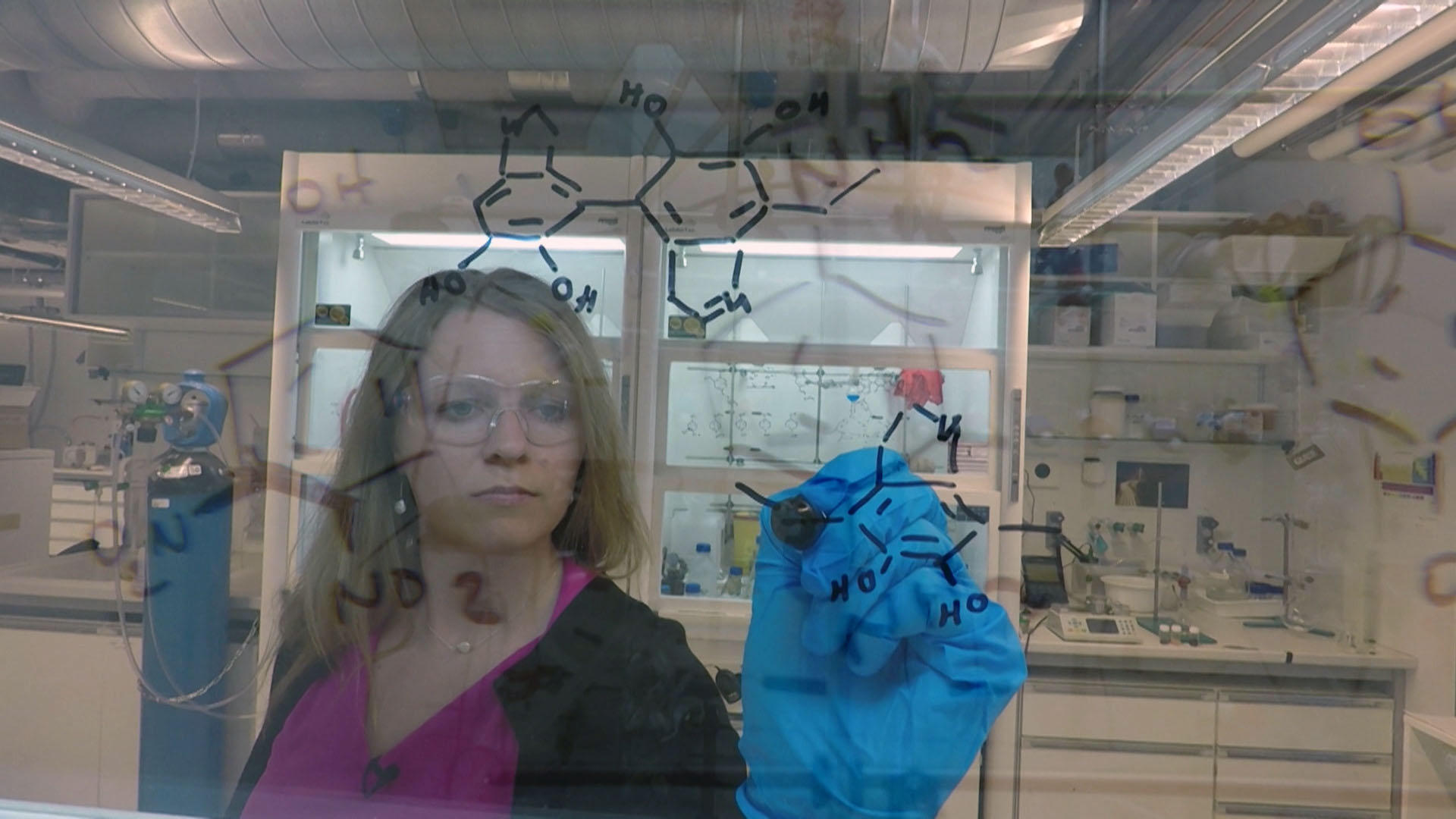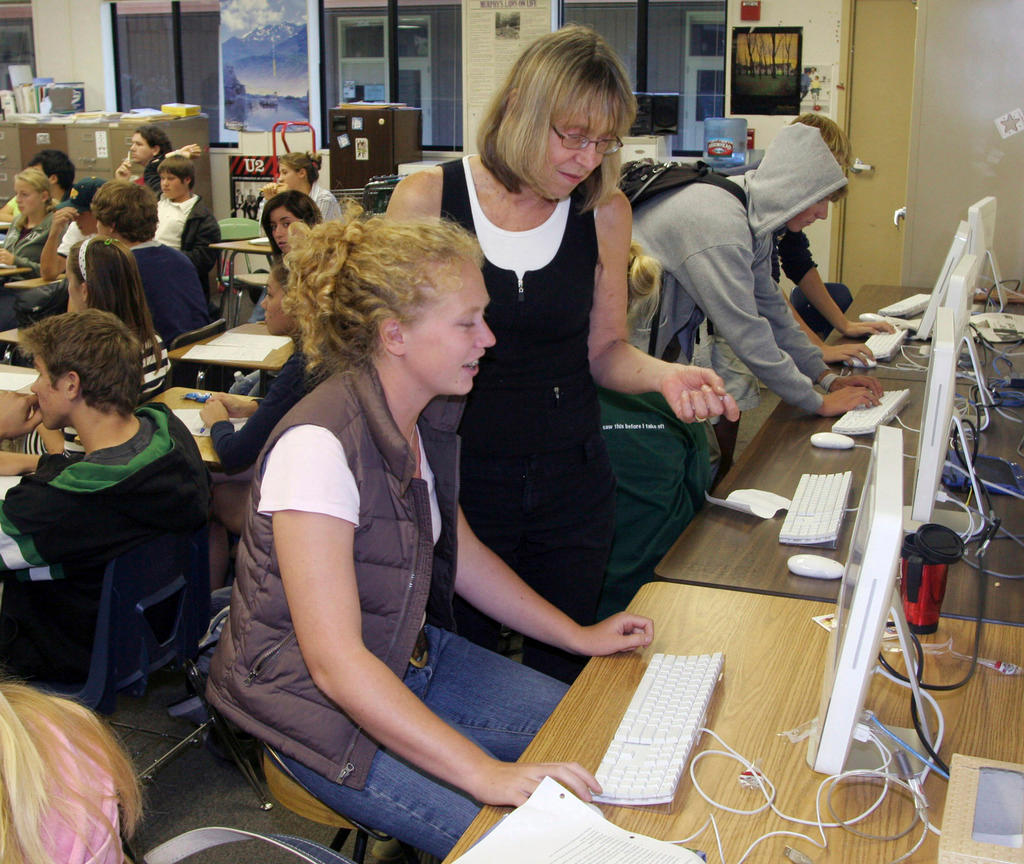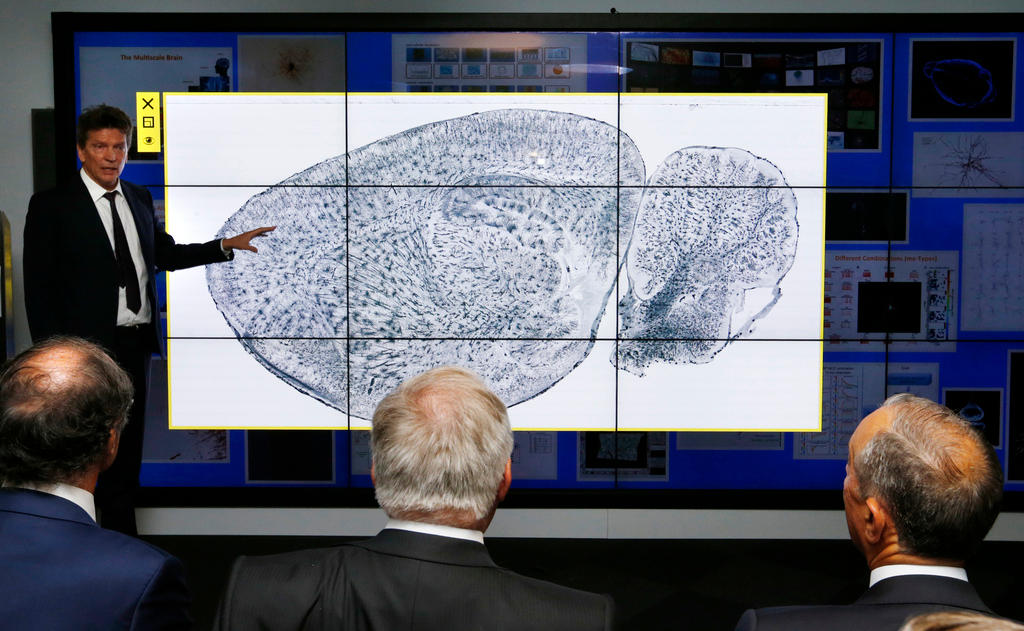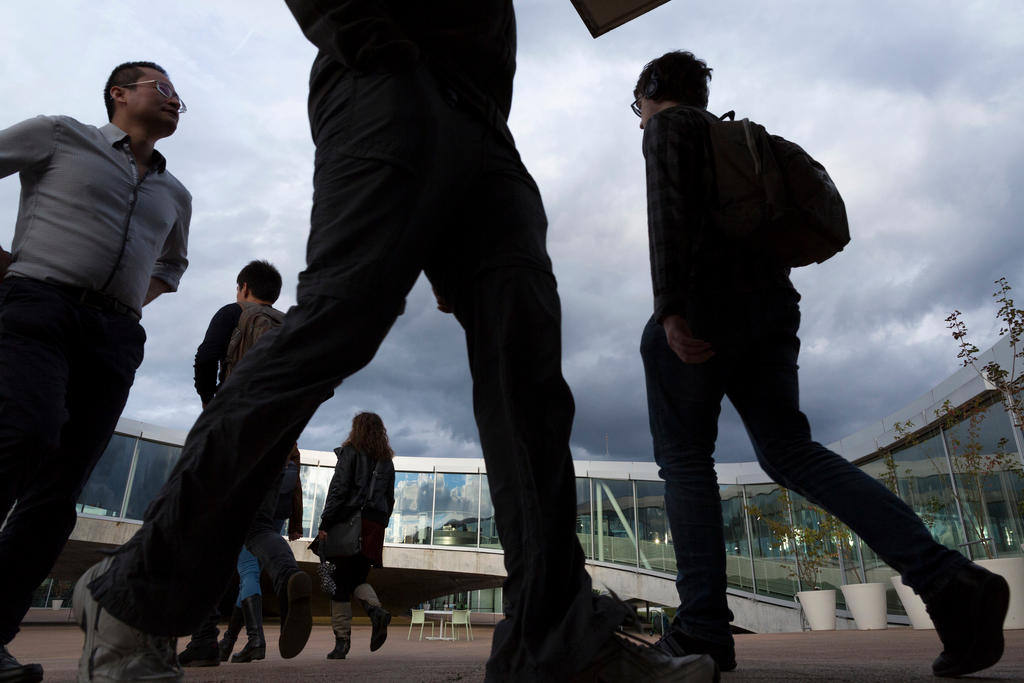EPFL marks 50 years of scientific progress
Over the past five decades, the Federal Institute of Technology in Lausanne (EPFL) has been the home of many scientific discoveries, some with global reverberations.
Regularly ranked among the 25 top universities in the world, the EPFL has spawned various discoveries of scientific or commercial value. For example:
The computer mouse (end of the 1970s): developed in the lab of Jean-Daniel Nicoud, the Swiss mouse was a success thanks to the fact that its ergonomic design was present from the very beginning. The invention led to the creation of the Logitech company, which now employs some 9,000 people around the world.
The Delta robot (1985): the invention of Reymond Clavel, the robotic machine is now an industrial standard, especially for tasks such as the boxing of chocolates.
Grätzel cells (1991): used in the production of solar energy, these dye-sensitised cells are inspired by the process of photosynthesis in plants.
Scala programming language (2003): developed at the EPFL by Martin Odersky to simplify previous codes such as Java, it is now used by groups including Twitter, Apple, media groups (Guardian, New York Times, Huffington Post), LinkedIn, UBS, Airbnb, and Zalando.
Targeted stimulation: by combining an EPFL invention – flexible ‘e-Dura’ electrodes that are implanted on the spinal cord – with research on nerve reconstruction and direct electrical stimulation, EPFL researchers and doctors at the Lausanne University Hospital managed last year to enable paralysed patients to walk.
Marking 50 years
The EPFL has also found itself a new visual identity to correspond with its anniversary: a new logo built around the four letters of its acronym and the colour red, referring to Switzerland.
“We wanted to be seen as a young Swiss school, dynamic and exploratory and technological all at the same time, and with an international appeal,” said EPFL president Martin Vetterli in a statement to mark the school’s anniversary. “In short, a start-up which has quickly grown up and which has now become an adult.”
A new public space has been opened on EPFL’s Lausanne campus to mark the occasion: an open area that will host shows, theatre, and concerts.
Long history
The EPFL was first incarnated in a different form back in 1853, when a private initiative brought together 11 students in the so-called ‘special school of Lausanne’.
After several name changes it became the institute of technology of Lausanne University, before – in a decisive step – it was named the Federal Institute of Technology on January 1, 1959, following a decision by parliament to accord a second federal status (the Federal Institute of Technology in Zurich, or ETHZ, already existed).
The next 50 years brought much change: EPFL’s campus was moved and extended, the areas in which it offers education have broadened, the number of students has increased tenfold, and its reputation has grown internationally.
To celebrate 50 years of the EPFL, various events are planned throughout 2019. Most of those aimed at a wider audience will take place later this year: 30,000 people are expected at an open day from 14-15 September, while a special “open science” day is planned for October 18.




You can find an overview of ongoing debates with our journalists here. Please join us!
If you want to start a conversation about a topic raised in this article or want to report factual errors, email us at english@swissinfo.ch.